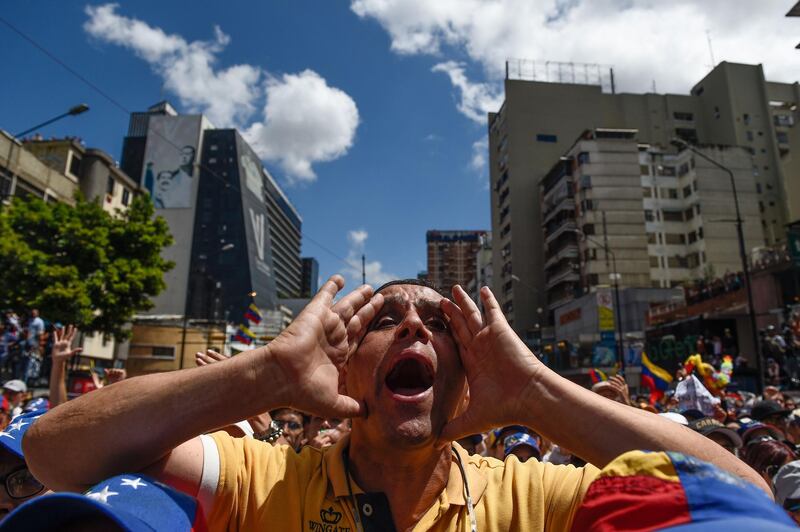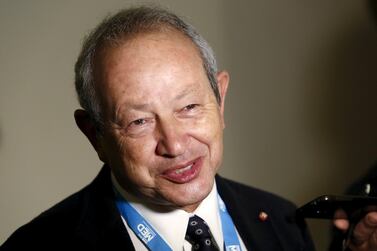Opposition leader Juan Guaido said on Tuesday that he will try to run caravans of badly needed food and medicine into Venezuela but won't start for nearly two weeks, a timeline that threatens to deflate momentum toward unseating entrenched President Nicolas Maduro.
Surrounded by thousands of cheering supporters, Mr Guiado set February 23 as the date for bringing in the badly needed US assistance that has been warehoused on the Colombian border since last week, but he provided few details.
The 11-day wait was sure to be a disappointment for Venezuelans desperate for the supplies. More than 2 million people have fled the country's soaring hyperinflation and severe food and medical shortages over the last two years. The minimum wage, which most Venezuelans earn, amounts to less than $6 a month, and it is common to see people scouring garbage for food in the streets of Caracas.
"Right now, I'm going to give this order to the armed forces: Allow in the humanitarian aid. That's an order," Mr Guaido told the mass of people gathered in Caracas.
Despite the authoritative-sounding assertion, there has been little evidence that the allegiance of the security forces – the country's key powerbroker – has swung behind Mr Guaido, a virtually unknown lawmaker until last month, when he took the helm of the National Assembly.
Mr Guaido provided few details on how the aid would be brought in from the Colombian border city of Cucuta, except to call for mobilising caravans of Venezuelans – a daring and potentially dangerous maneuver that could lead to more violent confrontation with the security forces.
At least 40 people have already been killed in clashes since the 35-year-old lawmaker declared himself interim president January 23.
Jose Manuel Olivares, Mr Guiado's representative in helping lead the aid mission from Colombia, acknowledged the risk, saying he and other lawmakers plan to be at the front of the February 23 push to get the aid in, even if it means risking their lives.
"We have never told people to do something we are not willing to do," he said. "We're going to be there with people taking the risk."
Diego Moya-Ocampos, a Venezuela analyst with the London-based consulting firm IHS Global Insight, said Mr Guaido has gained broad support beyond the middle classes and deep into Venezuela's slums, once a stronghold of the ruling socialist party.
But that hasn't translated into support from the military and security forces, who Mr Moya-Ocampos said continue to distrust the opposition and fear being held accountable for criminal activity and human rights violations if the regime changes, despite Guaido's offer of amnesty.
"The military has had more than one opportunity to withdraw support for Maduro," Mr Moya-Ocampos said. "It has consistently continued to back him."
On the international stage, Mr Guaido has won backing from nearly 60 countries, including the United States, which has pledged an initial $20 million in support and has already shipped emergency food and medicine. Canada says it will send $53 million in aid.
Mr Guaido told the crowd that thousands of volunteers he has recruited online would help organise the food and medical supplies and get them across from Colombia. He also announced a second collection point for aid to be brought in from Brazil.
Mr Maduro backers, meanwhile, gathered at a square in the capital, cheering and waving flags. They spoke out on state TV against intervention from what they called the "US empire," saying Mr Maduro is Venezuela's rightful president.
"We know that behind this supposed humanitarian aid is the intention to intervene in Venezuela," Vice President Delcy Rodriguez said on state TV. "It's a cheap show."
Despite having the world's largest oil reserves, Venezuela is gripped by widespread malnutrition, disease and violence after 20 years of socialist rule launched by the late President Hugo Chavez. Critics accuse Mr Maduro, Chavez's hand-picked successor, of unfairly winning an election last year for a second six-year term by banning his popular rivals from running and jailing others.







